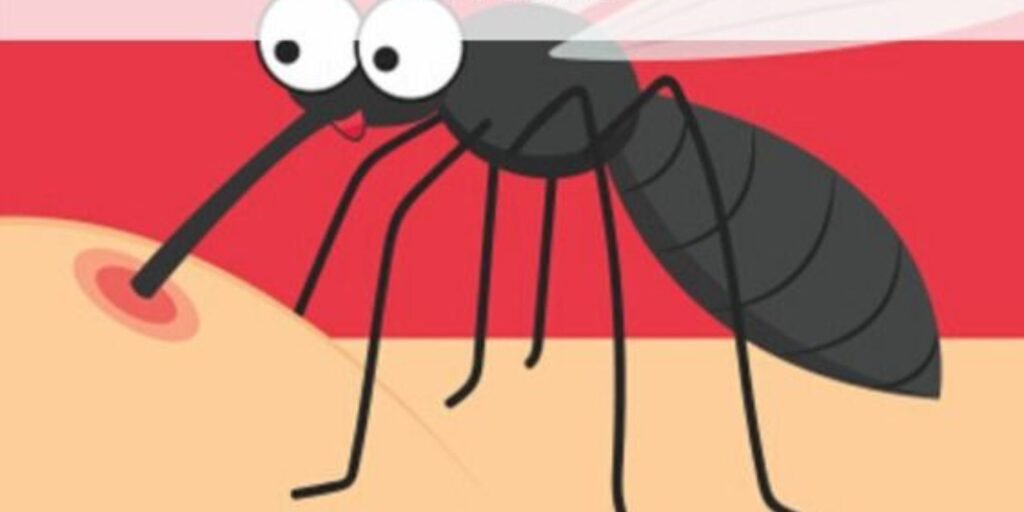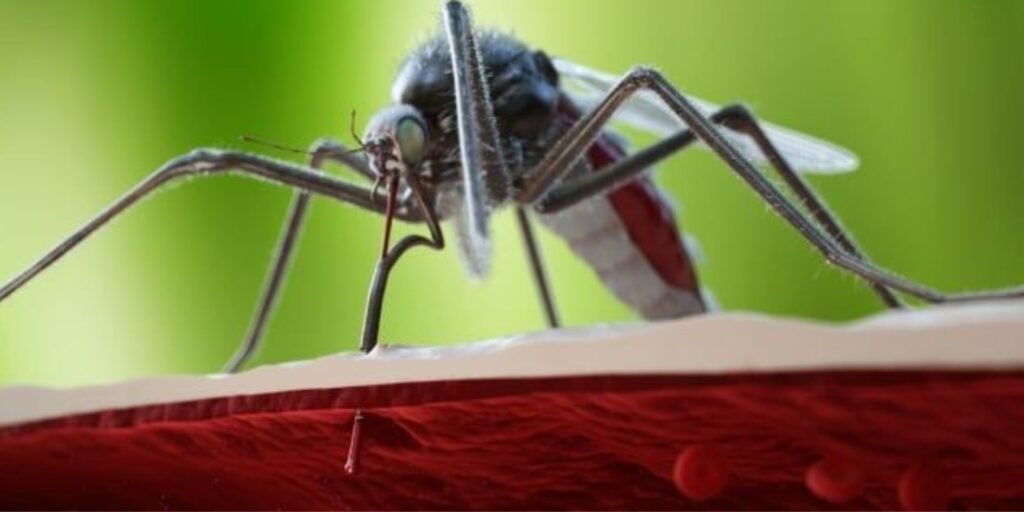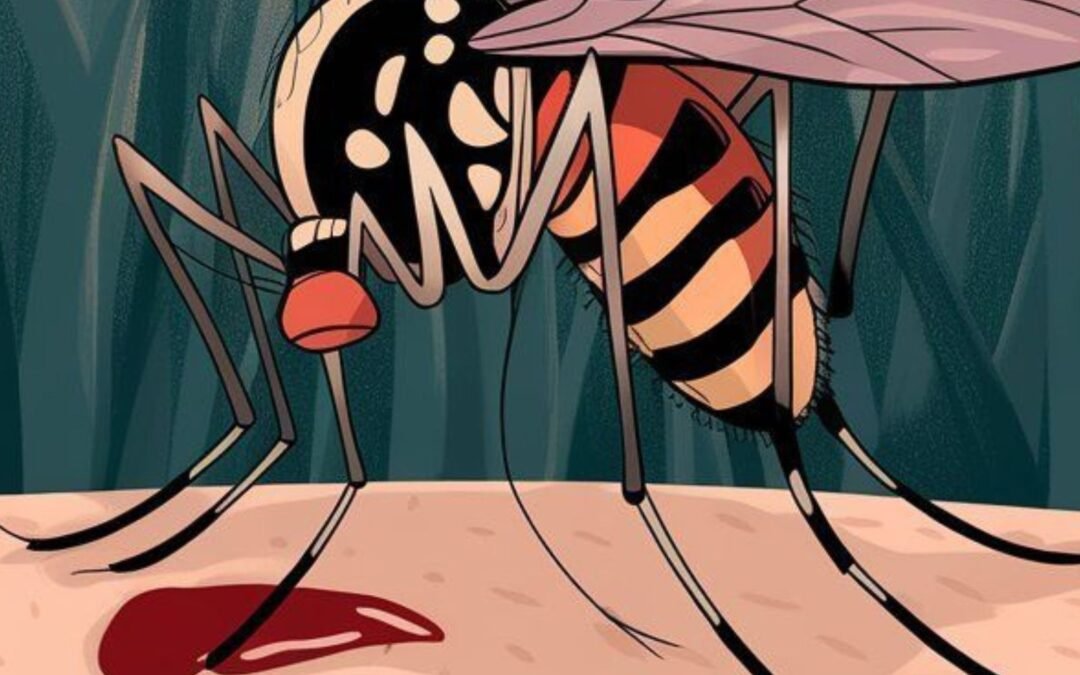Overview
For many, a mosquito buzzing nearby signals an impending itchy bite. But have you ever wondered what blood type mosquitoes like the most? One of the primary factors influencing a mosquito’s preference is a person’s blood type. Understanding the relationship between mosquitoes and blood types can help you better understand why some individuals are bitten more frequently, while others seem to escape largely unscathed. This blog post explores the fascinating connection between mosquitoes and blood types, backed by scientific studies, and offers practical insights to help you avoid these persistent pests.
How Do Mosquitoes Choose Who to Bite?
Mosquitoes are not randomly attracted to their victims; they use various cues to identify a potential host. Some of the most well-known attractants include:
- Carbon Dioxide: Mosquitoes are drawn to the carbon dioxide that humans and animals exhale.
- Body Heat: The warmth of our bodies can help mosquitoes locate us, as they are heat-sensitive.
- Body Odors: Sweat, lactic acid, and certain natural body odors can make us more appealing to mosquitoes.
- Skin Bacteria: The bacteria that naturally live on your skin also play a role in attracting mosquitoes.
But blood type, as research suggests, is another major factor in why certain individuals seem to attract mosquitoes more than others. Studies have shown that mosquitoes are more attracted to people with certain blood types, which can explain why you might be the target of mosquito bites, while others around you aren’t
Blood Types and Mosquito Attraction: The Science Behind It
The connection between blood type and mosquito attraction has been the subject of several studies. The most significant findings suggest that mosquitoes have a particular preference for people with Type O blood. Here’s a breakdown of how blood type impacts mosquito attraction:
1. Type O Blood: The Mosquito Magnet
Research consistently shows that people with Type O blood are the most attractive to mosquitoes. In fact, mosquitoes are almost twice as likely to land on someone with Type O blood as they are on someone with Type A or B blood. But why does this happen?
Type O blood contains a specific protein that mosquitoes seem to be highly attracted to. While the exact mechanism is still not fully understood, it’s believed that the proteins present in Type O blood are somehow more detectable or appealing to mosquitoes. Additionally, people with Type O blood tend to produce more of the chemicals that attract mosquitoes, such as lactic acid, which may further increase their attractiveness to these pests.
2. Type A, B, and AB Blood: Less Attractive to Mosquitoes
If you have Type A, B, or AB blood, you are likely to attract fewer mosquitoes compared to those with Type O. While these blood types do still attract mosquitoes, they are not as heavily favored. However, there are some interesting nuances to consider:
- Type A Blood: Studies show that people with Type A blood are less attractive to mosquitoes than those with Type O, but they still experience bites. People with Type A blood may have slightly higher levels of certain chemicals in their sweat, such as lactic acid, that attract mosquitoes, though not as much as those with Type O blood.
- Type B and AB Blood: These blood types appear to be less attractive to mosquitoes than Type O and A. However, the difference in attraction between these blood types is relatively small, and other factors, like body odor and CO2 output, may still play a significant role in attracting mosquitoes.
Mosquito Attraction 101
Before we dig into the specifics of blood types, it’s important to understand why mosquitoes bite in the first place. Female mosquitoes require the nutrients in blood, specifically proteins, to develop their eggs. They use a combination of sensory cues to locate their targets, including:
- Carbon dioxide (CO₂): Mosquitoes are highly sensitive to the CO₂ humans exhale.
- Body odour: Certain chemicals the body produces, like lactic acid, can make some people more attractive to mosquitoes.
- Heat and movement: Mosquitoes are drawn to warmth and motion, signalling a potential host.
Among these factors, blood type plays a unique role in their feeding preferences, as we’ll explore below.
What Blood Type Do Mosquitoes Prefer?

Studies have shown that mosquitoes demonstrate a clear preference for blood types. One widely cited study published in the Journal of Medical Entomology found mosquitoes are particularly drawn to individuals with Type O blood.
Why Type O Blood Attracts Mosquitoes
Research suggests that individuals with Type O blood emit specific substances through their skin that act as attractants for mosquitoes. Meanwhile, people with other blood types, such as Type A or B, produce fewer attractive chemical signals, making them slightly less appealing.
To break it down:
- Type O: Mosquitoes land on Type O individuals almost twice as often as those with Type A blood.
- Type A: Individuals with Type A tend to be less attractive to mosquitoes than those with other blood types.
- Type B: While Type B individuals fall somewhere in the middle, they are more attractive than Type A but less than Type O.
However, it’s important to note that blood type isn’t the only factor—other environmental and physiological factors also influence mosquito attraction.
Other Factors That Influence Mosquito Preference
Even if you have a less preferred blood type, you might still find yourself a mosquito magnet depending on other variables:
- Body Odor: Bacteria living on your skin can produce distinct smells mosquitoes love or avoid. People with higher concentrations of certain bacteria may find themselves more frequently bitten.
- Carbon Dioxide Levels: Mosquitoes are highly attracted to CO₂, so individuals who exhale more—such as those engaging in physical activity or pregnant women—are often larger targets.
- Heat and Sweat: Mosquitoes are drawn to heat signatures, and perspiration (which contains attractants like lactic acid) only increases their interest.
- Alcohol Consumption: Studies show that alcohol, such as beer, may slightly increase your appeal to mosquitoes.
- Genetics: Some people naturally produce more chemicals in their sweat and skin, making them genetically predisposed to mosquito bites.
Do All Mosquito Species Prefer Certain Blood Types?
It’s worth noting that not all mosquitoes are the same. There are over 3,500 species of mosquitoes worldwide, and not all of them are interested in human blood. Among those that bite humans, preferences for blood types and other attractants can vary slightly by species. For example:
- Aedes aegypti: Known for spreading diseases like dengue and Zika, these mosquitoes often prefer warm-blooded hosts.
- Anopheles: These malaria-carrying mosquitoes are highly responsive to chemical scents and body heat.
How to Protect Yourself, Regardless of Blood Type
Whether you’re a Type O magnet or not, taking proactive measures to reduce mosquito bites and lower your risk of mosquito-borne diseases is essential. Here are some effective strategies:
- Use Mosquito Repellents
Opt for repellents containing DEET, picaridin, or lemon eucalyptus oil. These are proven to effectively deter mosquitoes.

- Wear Protective Clothing
Long sleeves, pants, and socks can be a physical barrier against bites, particularly during peak mosquito activity times, such as dawn and dusk.
- Remove Standing Water
Mosquitoes lay their eggs in stagnant water. To prevent breeding, regularly empty or remove items like buckets, plant saucers, and gutters that collect water.
- Install Mosquito Nets and Screens
Using nets around sleeping areas or installing mesh screens on windows and doors keeps mosquitoes from entering your space.
- Try Natural Repellents
Plants like citronella, lavender, and lemongrass have natural mosquito-repelling properties. Burning citronella candles or planting these around your home can reduce mosquito presence.
Myth vs. Reality About Mosquito Attraction
There are several myths surrounding what attracts or repels mosquitoes. For instance:
- Do bright colours attract mosquitoes? Yes, to some extent. Mosquitoes are drawn to darker clothing because it traps heat.
- Does eating garlic repel mosquitoes? There’s no substantial evidence to support this claim.
- Are mosquitoes more attracted to light? Mosquitoes are not inherently attracted to light but may swarm around light sources when actively searching for prey.
Final Thoughts on Mosquito Blood-Type Preferences

While people with Type O blood may be more susceptible to mosquito bites, other factors like body odour, CO₂ levels, and temperature play critical roles in determining mosquito attraction. Understanding these contributing factors allows you to protect yourself from mosquitoes regardless of your blood type.
Looking to enjoy the outdoors without the constant buzz and bite of mosquitoes? Incorporate some of the strategies listed above to reduce your risk and stay informed about how to safeguard your health.

